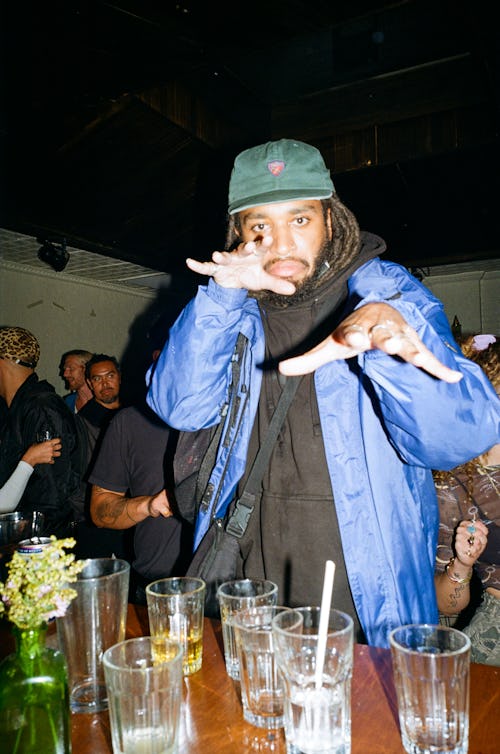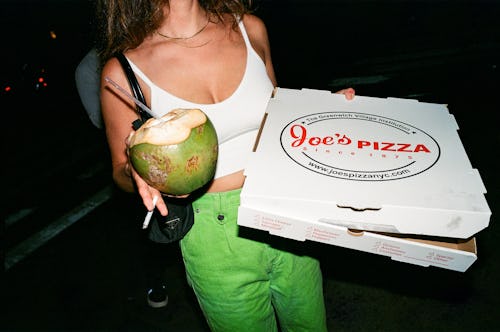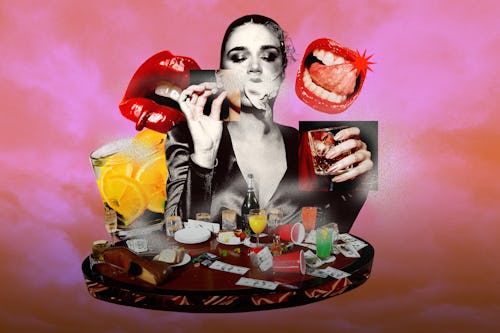
When New York reopened last summer, the return of nightlife was a revelation. I remember what it felt like as I pushed through the velvet drapes onto the dancefloor, swallowed by strangers’ bodies and crimson lights. It felt raw and urgent, vital even. It instantly offered everything I’d been missing — a connection to my body and to others; the pleasure of being entangled in strangers' lives, even if just for a moment. Something in me cracked open. I slowly raised my arms in the air, squeezed my eyes shut, and cried.
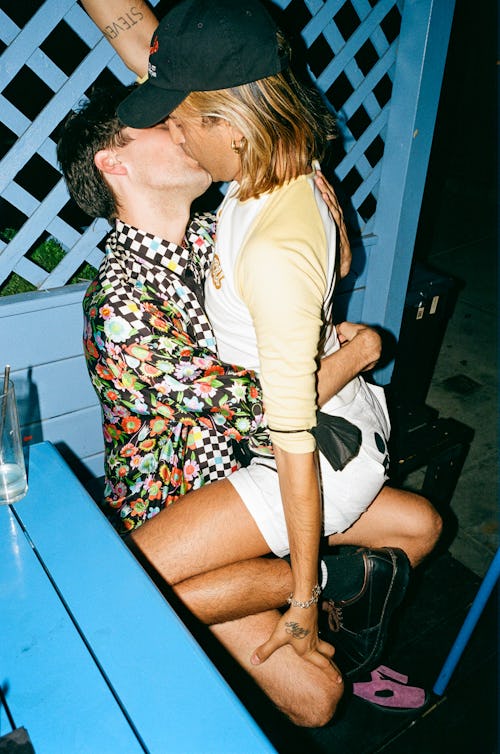
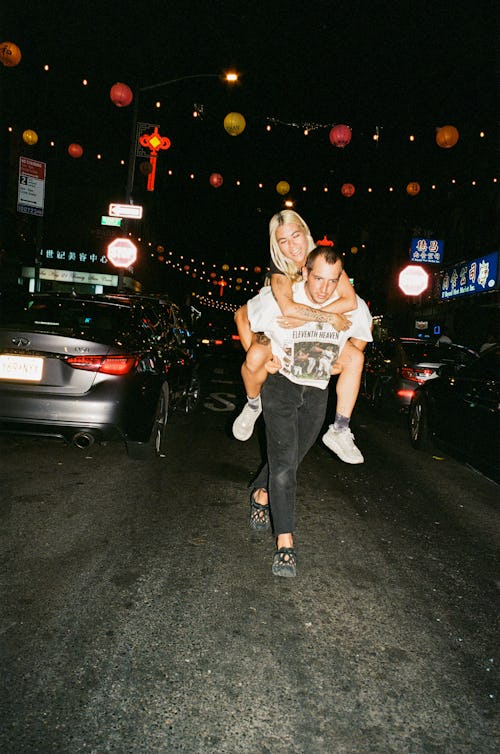
Being in a crowded space with hundreds of unmasked people — something that would have been unfathomable and frankly terrifying the year before — was a visceral shock to the system.
But hot vaxx summer never really made good on its promise of carefree revelry. This was, in part, because the pandemic hadn’t actually ended (the virus only officially entered the endemic phase last month) but also because, while the virus was retreating, our anxiety was not. We scrambled to experience every pleasure we’d been denied, but it didn’t feel as good as we’d imagined it would. The thrill of drinking at bars again and reconnecting with friends didn’t quell our anxiety, it only masked it.
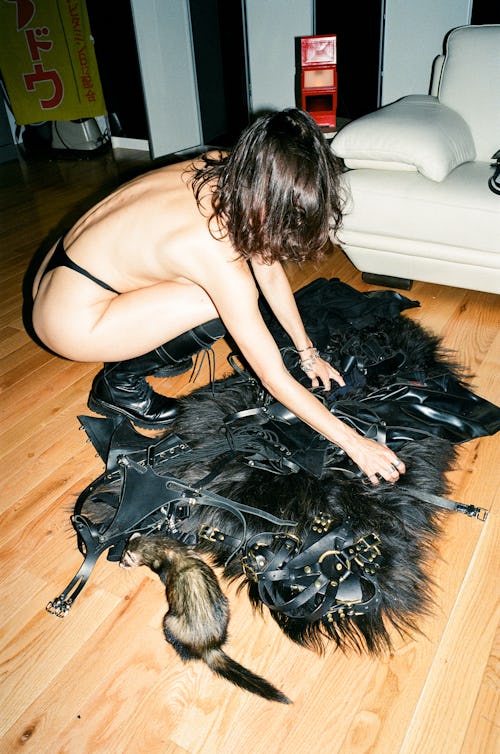
Trump was out of office, sure, but the Biden presidency was not a panacea. Each day since has delivered a new reason to be disillusioned. A war being waged abroad. Federal abortion rights being rescinded. By the time summer 2022 arrived, a new virus, Monkeypox, had already emerged.
“Summer 2020, we all went really hard with protesting, phone banking, researching, reading, just being really engaged politically,” said Alice, a graduate student based in Portland. “And then seeing Biden get elected, not really feeling like a lot has changed, seeing Supreme Court rulings that we disagree with and seeing the pandemic just rage on, we got really beat down. In a way, a lot of us have this new attitude of, ‘Okay, I can keep me and my community safe. I can't really do much else.’"
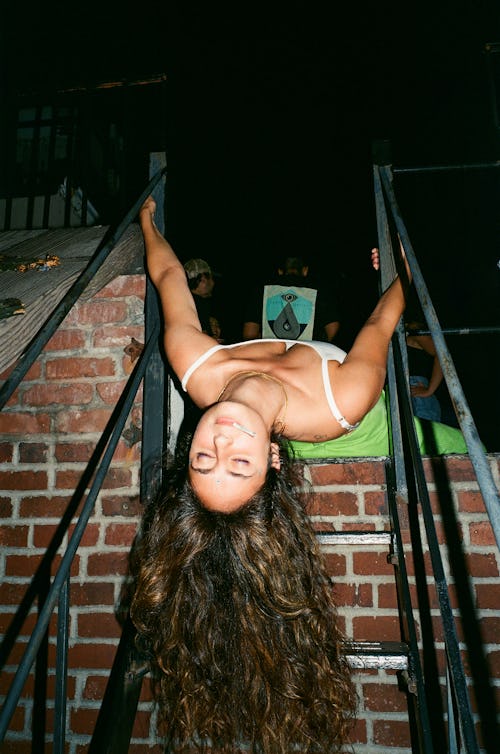
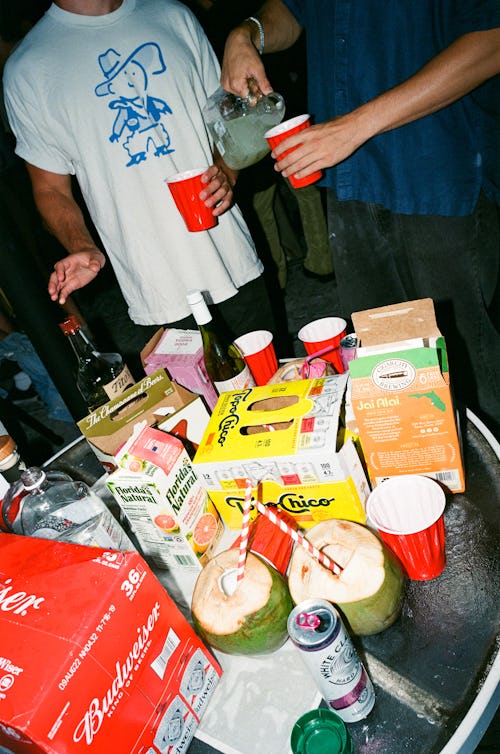
This feeling of resignation has given nightlife a new tenor; our pandemic-era consumption habits have officially transitioned from chaotic good to chaotic evil. We tried disassociating with an endless stream of TikToks and designer drugs, but it didn’t do the trick, so we’ve ratcheted it up to full-fledged chaos. We’re no longer partying to connect with each other; we’re just dancing the doom away.
Enter: the summer of self-medication. The name of the game has become excess — embracing our vices by concocting a personalized cocktail of cures. Cigarettes — not just vapes — are once again wedged between our fingers. Espresso martinis, essentially an elevated version of Redbull and vodka, had a moment before giving way to, well, straight vodka. “Wellness is dead, long live the martini,” Eater declared earlier this year. It’s not hard to see how the slippery slope of our pandemic drinking habits got us here. We’ve increasingly leaned into decadence — caviar bumps, actual bumps — and indulging our every impulse. We’re choosing pleasure — sometimes with multiple partners — at every junction, and deferring deferred gratification.
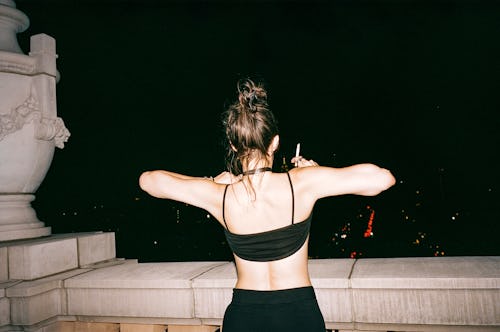
“We've been going to raves. These big warehouse parties where the music is just so loud and so repetitive, you simply can't think. And that's the goal,” says Alice. She references a TikTok user, @forgotten.like.firefox, who shared an amusing summary of this idea: “If music all the time, no time mentally ill. Music so loud, no hear own thought, no think.”
Cindy, a culture consultant in Los Angeles, describes the phenomenon of passive coping as “Smooth brain vibes … You need to do things that are specifically needed to turn your brain off.”
The ideal soundtrack to drown out your internal dialogue — and the world — is, of course, house music. While Beyoncé and Drake certainly didn’t revive the genre, their adoption is an acknowledgment of nightlife’s growing cultural chokehold. Beyoncé releasing “Break My Soul” just after Roe v. Wade was overturned was as much pure marketing prowess as it was a keen awareness of how music and dance can direct our healing, helping us to “release” ourselves from the psychic weight of the social and political issues we feel helpless to fix.
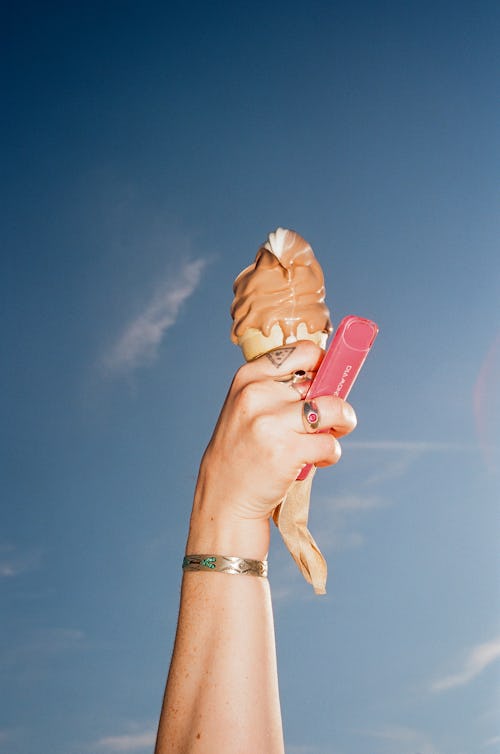
We aren’t giving up so much as giving in. “There were a few months there, especially right after I had COVID, where it just felt like, "I don't care. Let's stay up till five. Let's do whatever we want,” said Alice. “It felt a little bit more unhinged this summer.”
Despite how it may seem on the surface, many people see the drive to debauchery as a crucial form of coping. As Morgan, a Brooklyn tech consultant, puts it: “We spent the last two years sinning to survive.” Healing ourselves is also a cognizant push against capitalist ideals like the commodification of “self-care” — which prioritizes products over actual peace — and hustle culture. We’ve rejected Kim Kardashian’s call to “Get your ass up and work” and executed the Girlboss, and in their place, we have radical rest and ketamine.
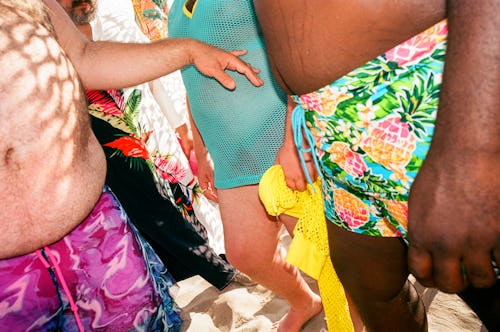
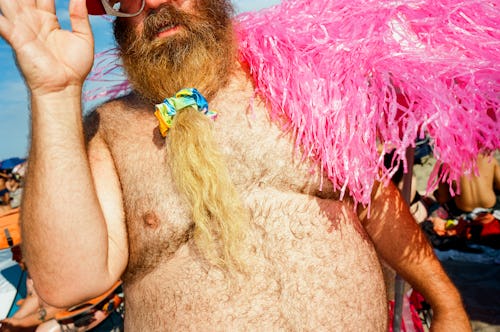
“Everybody's work life changed, and if you weren't working, that was a whole other set of problems. We've emerged from that first stage of being in lockdown and moved toward trying to find some kind of normalization, but of course, it's not remotely normal,” says Ingrid Walker, author of High: Drugs, Desire, and a Nation of Users. “Not just because of COVID … but because of the ways in which people have reevaluated what matters to them during this time. Drug use is more escalated compared to before.”
Using drugs to self-medicate is a way to postpone working on our mental health to an indeterminate day in the future in favor of a bandaid, something to simply hold us over. After all, who can afford therapy anyway? “It doesn't matter how much you pay for insurance, it's really hard to find somebody that doesn't cost $300 a session just to tell you that you need Lexapro,” Adam, a Los Angeles DJ and producer, tells me. “How is this fair? It's just not equitable.”
Wellness feels unreachable, aspirational even, particularly during a period of inflation that has robbed us of such affordable delights as the dollar pizza slice.
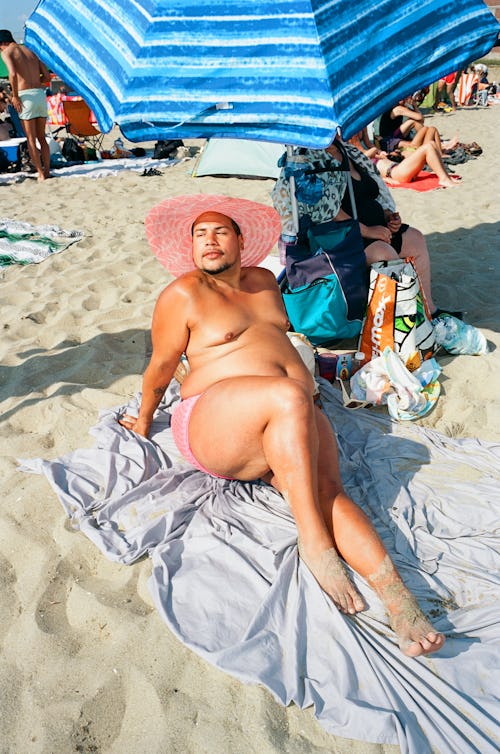
“People are putting so much pressure on having fun … they're almost being manic about it,” Adam says. Maybe that’s why we’re so brazen in our pursuit of pleasure right now — because we believe we don’t just deserve it; we desperately need it.
Being unashamed has also given way to a refreshing reversal — a calculated move away from labored image architecting, “curating” and “personal brands” to the path of least resistance. “We're in a time where influencer culture is, in my mind, dead. I don't think that has a future. This era of partying hard, living in the present … I think that it's all tied up,” Alice explains.
People feel decidedly less self-conscious and effortlessly authentic right now, but not in a contrived, made-for-Instagram way. Consider the growing popularity of BeReal, a new social app that prompts users to share candid photos "without filters." We’re embracing radical vulnerability because we’re simply too exhausted to be anything but ourselves.
This might explain why we’re wistful for the unmanicured aesthetic of the Cobrasnake era of indie sleaze — a time when unhinged ragers were as routine as chugging a can of Sparks.
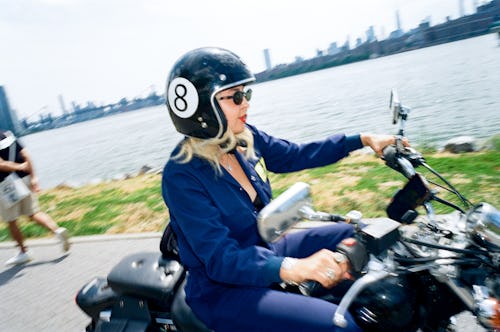
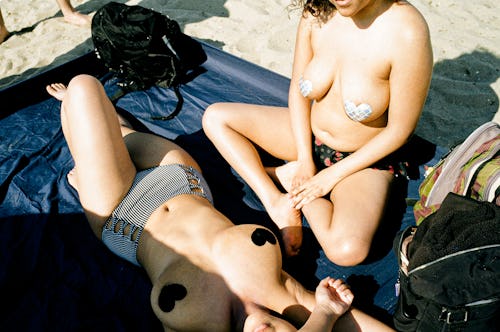
Still, there’s a darkness about this summer that resists clever nicknames a la hot vaxx summer. The alarming underbelly of the excess lifestyle and pushing our bodies to the extreme is inevitably exhaustion, depression, or worse. The way Cindy sees it, self-medicating can be life-affirming. It’s an insistence on feeling good now, even if we pay for it tomorrow. “You could look at it and say, ‘Oh, that's very self-centered and selfish.’ But I think being that way allows us to be better friends, better coworkers, better partners, and members of society. If you approach it that way, you start to realize [pleasure] is an inherent right, and you encourage it in everybody else.”
There are some signs that this season of self-medication is not the start of an era of pure nihilism. As drug culture has intensified, there’s been a concerted push toward prioritizing harm reduction, including drug testing and overdose intervention. “Consent culture, anti-racism, and anti-oppression culture as a whole are still prevalent and influencing all of this. So yes, everybody's partying really hard, but that’s happening in a more responsible way that's keeping people safer,” says Alice.
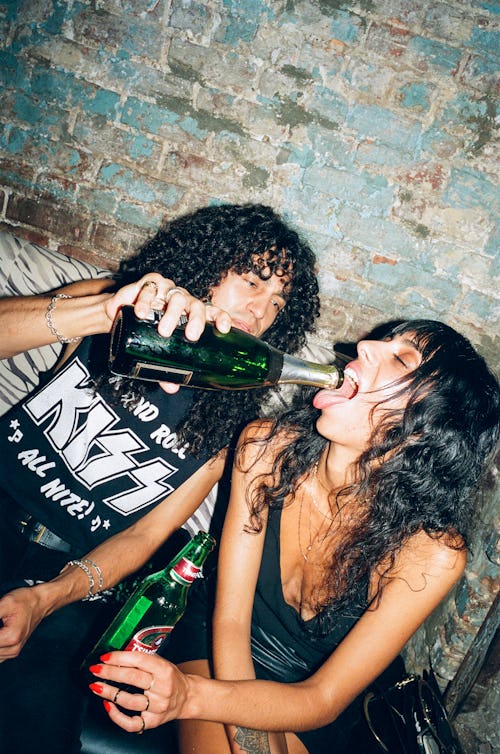
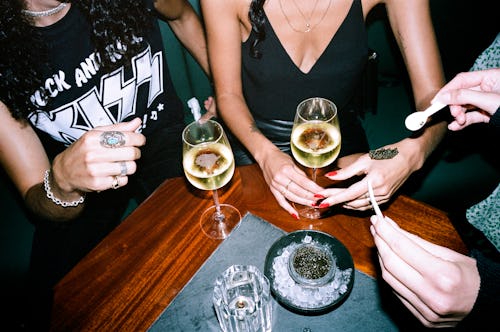
Low-income and marginalized communities have undoubtedly been hit hardest — 2021 set a new record for overdose deaths in the United States, in large part due to opioids — and have had a drastically different experience with drugs, both because of the types that are accessible to them, and the stigma associated with their use. “There's so many people who are just barely hanging on right now, financially and psychologically, and otherwise. And for them, substance use is definitely a much more limited set of options because of what's available,” Ingrid points out.
“It's kind of astonishing how we just turned our back on this whole overdose crisis that's happening. And it's because people feel like people are expendable,” she adds.
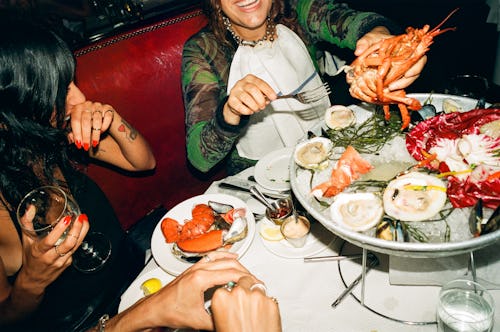
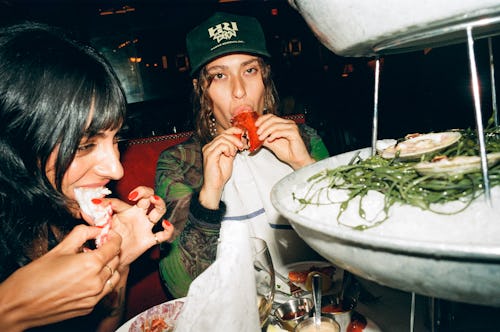
A shared commitment to care in drug culture has underscored the importance of ensuring dancefloors are safe spaces. “People of color are creating their own coalitions and working through trauma that way with psychedelics and community groups,” Ingrid says. “So there's definitely a response to the ‘too much’ of this moment in ways that are both escapist, but also really intentional.”
In the summer of our discontent, there’s a renewed desire to create a world that is in sharp opposition to the very things we’re trying to escape. “I think COVID unified everyone in a weird way … on fuck the system shit,” says Adam. “That kind of discourse is good, and unhappiness will lead to change. There will be people that'll be like, ‘I don't want to do drugs anymore. I want to make a difference,’ and we're already seeing that.”
“Going out with each other actually has a really beautiful communal aspect to it, too. It’s not just about partying or disassociating. A lot of it is — let's be together, because we don't know how much longer we’ll be on this planet,” says Alice. “Let's just be in community with each other while the world burns.”
